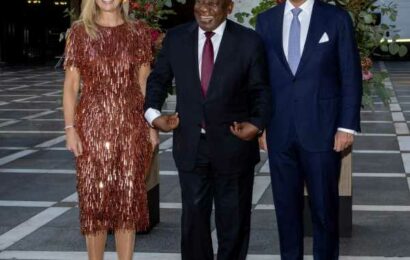Communication is both a science and an art. And with a little planning and practice, everyone can play to their strengths and leverage this capability to their advantage, says Sonica Aron.
Effective, impactful and compelling communication is the key to organisational success.
Fostering a positive workplace environment devoid of inefficiencies, effective communication facilitates enhanced collaboration and cooperation.
The capacity to convey information and ideas impactfully is an indispensable capability essential to succeed across functions and levels.
In fact, going beyond language, communications include the careful articulation and structuring of the message or content, the mode of communication, the tone, pace, verbal and non-verbal cues.
Especially in the context of office meetings where everyone wants to heard, everyone wants their contributions to be valued, many individuals grapple to convey their thoughts. ideas, and achievements in an effective manner, leading to them being overlooked, not heard and eventually dissatisfaction, disengagement and loss of productivity.
Both the individual and the organisation lose out.
Communication is both a science and an art. And with a little planning and practice, everyone can play to their strengths and leverage this capability to their advantage.
These key strategies can help you lead and deliver effectively in your next office meeting:
- You can post your workplace and career-related questions HERE
1. Careful Planning And Preparation
The first step to acing an office meeting involves careful planning and preparation.
Reviewing the agenda, outlining the objectives that you want to achieve, and deciding how to move forward are a few things you would want to do before attending an important meeting.
The content and language you choose to communicate in will help you stay confident. Instead of relying on jargon and dense vocabulary, choose to speak in a language that everyone understands.
Identifying the potential topics of conversation ahead of time is critical as it will assist you in navigating the meeting confidently and well in time.
If your preparation will help set the base for the meeting, your confidence in your abilities will determine your success.
2. Identify, Understand Your Audience
While it might seem enticing to go all natural and move through the meeting as it unfolds, it is certainly essential to know your audience, their mindset, their agenda, and what’s at stake for them before you begin the meeting.
Typically, most attendees only consider 50% of meeting time to be a reasonable use of their time.
Thus, identifying and understanding your audience beforehand will assist you in creating and delivering compelling insights, inputs, and contributions that will keep the attendees engaged throughout the meeting, resulting in successful outcomes.
3. Maintain Confident Body Language
A confident individual is more likely to disperse the message effectively while leaving a lasting impression on the audience, maintaining the very essence of a meeting.
In addition to confidence, positive body language matters a great deal.
Maintaining strong posture, keeping regular eye contact, and using suitable gestures will keep your audience engaged and interested until the end.
The more confidently you deliver the message, the more assurance it will spark within the team.
4. Lead Your Meetings Right!
The art of effective communication goes beyond the mere choice of words and stresses the importance of powerful message delivery.
The success or failure of a meeting depends upon how impactful and confident the meeting host is in her/his approach.
With sufficient planning and preparation, one can surely lead effectively and deliver messages efficiently.
It is not about being the loudest or the most knowledgeable in the meeting, but being the most compelling communicator in the room.
Just as preparation is vital for a successful meeting, fostering open communication and addressing feedback is equally crucial.
At the end of the meeting or a presentation, it is important to set aside time for interactions and to exchange valuable feedback.
These actions make attendees feel valued, foster trust and collaboration while concluding the meeting on a positive note.
Sonica Aron is Founder and Managing Partner, Marching Sheep, an HR consultancy.
- You can post your workplace and career-related questions HERE
Feature Presentation: Ashish Narsale/Rediff.com
Source: Read Full Article


